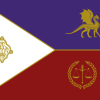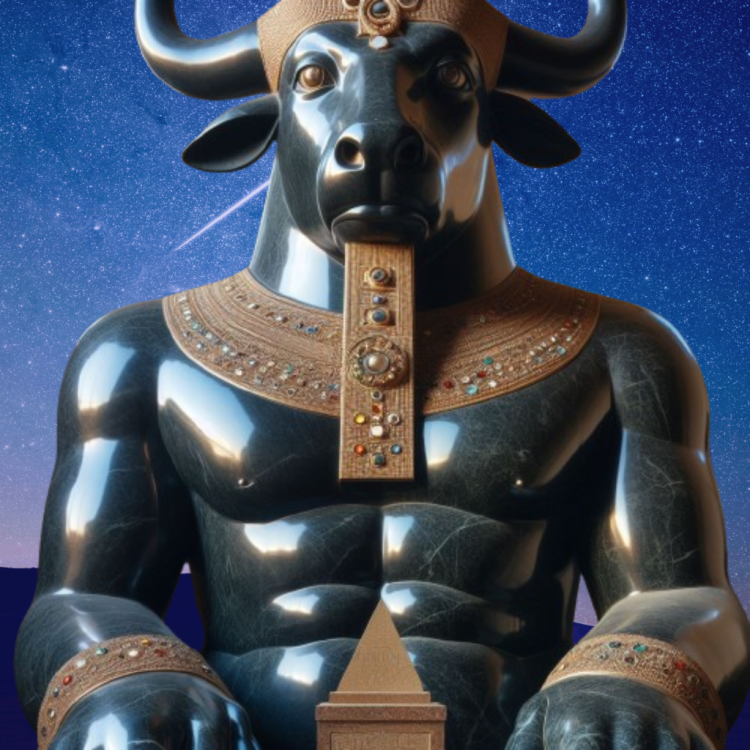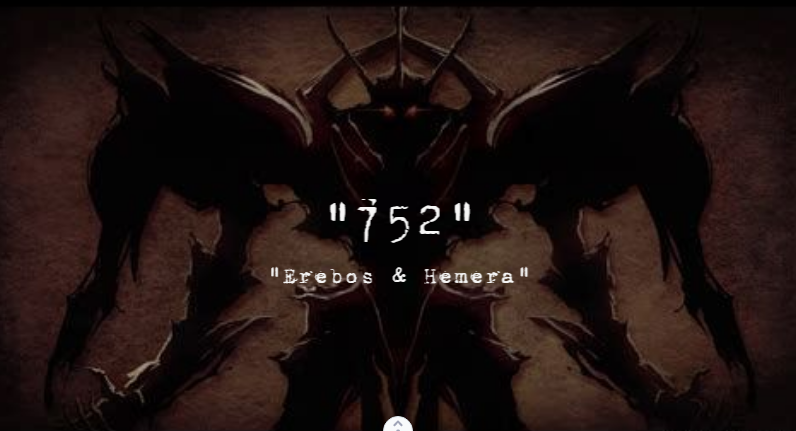Search the Community
Showing results for tags 'history'.
-
Akachi the Unfaithful Part 1 The birth of Akachi The city of Afihadume ruled over the surrounding hills, which bore the same name. In this city stood a large statue standing seventy cubits, who acted as the god of the people of the city. Made of polished onyx stone and beset with precious gems, its head was that of an ox, and its body was that of a mighty man in a seated position with its legs crossed. A 14-cubit obelisk inlaid with gold was located between the statue's legs, which the women offered flowers to daily. At daybreak, the sun would rise between the horns on top of its head, and the people would worship the statue for bringing forth the day, and at sunset, a chosen maiden would sleep beneath the obelisk all through the night to entice the god to return the day. The name of this god was Fames, ruler of the sun and sky, and the people swore by Fames; when they went to war, they fought and died in the name of Fames; and when two youths joined in marriage, they were blessed by Fames. There were thirteen other gods that could be found in the night sky in the appropriate season; they also served the people of the city, but Fames was above them all. And a law was passed that every house was to have an idol of Fames before they would be allowed to place any other god, idol, or shrine in their house, and if one broke this law, the entire household would be locked within, and the house would be set ablaze. One of the Priests of Fames was a man named Yobanna who had six sons: the oldest was Mazzi, born of Amara, a princess from the north; the second was Yelani, born to Edele, the daughter of a merchant; the third was Akachi, born to Nkiru, a captive harlot who served Yobanna for a year before being sold; the fourth and fifth were Diyi and Izuchukwu, the brothers of Mazzi, all sharing the same mother; and the youngest was Akumjyeli, the brother of Yelani. Yobanna also had three daughters, the oldest being Chidi, the sister of Yelani and Akumjyeli, born of Edele, and twin girls named Chinaza and Chineze, sisters to Mazzi, Diyi, and Izuchukwu, born of Amara. All the children of Yobanna were educated by the priest to know the seasons and the stars, history, and herbalism. Whenever one of his children showed interest in something, Yobanna would seek out a teacher for his children to learn from. All of them but Akachi. On the night of Akachi's birth, stars fell from heaven, terrifying the people. One such star fell and struck the head of Fame, destroying it and causing the head to crush the obelisk. When the star struck the head, it broke in two, one piece destroying a portion of the king's house and the other landing harmlessly on the door step of Yobanna; at that exact moment, the child crowned and broke free of his mother. Fearing the people would attach meaning to this, Yobanna quickly hid the piece under his home. Upon entering the house and looking upon his son with great joy, he named him Akachi, meaning "the hand of God." He then beckoned the mother and child to leave for a safe place as flames began to spread across the city. The next morning, after the fires had been put out, the King of the city, Uwaezuoke, called all his advisors, all the wise men of the city, and all the priests together. Uwaezuoke was a mighty warrior, undefeated in battle. He and his army conquered the hills of Afihadume and all the land surrounding it, making his name known far and wide. As the men gathered into the remains of the king's home, Uwaezuoke spoke to them, saying, "It is no small thing that has befallen us. If we have angered the gods, one of you must know, and if it is a sign to warn, you would also know this. Tell me of this thing so that we may deal with it accordingly." After this, one of the wise men stepped forward and said, "My king, you are wise in knowing it to be a sign, for we all saw the heavens move in the night before. I tell you this is a sign of destructive change to come to us in the future." The Wiseman continues, "Your home being struck means an end to your rule, and the heads of Fames being destroyed marks an end to our city; we must find the cause and root it out. This will appease Fames and the other gods of heaven so that they may spare your rule and our city." At the very end of the wise man's speech, the king's advisor, Ndidi, saw Yobanna standing in the back of the room and spoke up, "My king, is it known that the star broke in two? One piece struck your home, but where did the other go?" Ndidi points toward Yobanna and says, "I tell you, my king, I saw the other piece land harmlessly at the door of Yobanna and seen him hide it under his house." At these words, the king became furious, standing up and calling Yobanna forward. "Is this true, Yobanna? Did you hide this from us?" Yobanna knew this could be the end of his house if he misspoke, so he chose his word carefully: "My king, it is true I hide the piece that befell onto my house; I wished to keep it, for in the moment I believed it to be of worth, but this was done without knowing of the god's intentions, for I knew nothing of the wise man's insight." At this, Ndidi interjected, "A son was born to Yobanna last night. As soon as the piece stopped at his door, I heard the cry of the child come forth; maybe it is not Yobanna who has grieved the gods, but his son." At this, all the men agreed, Yobanna was innocent; devote just as them, and advised the king to judge the child instead to spare the city. Surprisingly, the piece did land at Yobanna's door. So they began to make wild stories about the child not being a child of man but an evil servant of the gods who had to escape the judgment of Fames and heaven. The king, after hearing their stories, looked at Yobanna with kindness and said, "Bring me the child that I may judge him, for I am wise and will know if he is guilty, or if we have mistaken in our insights, do this, and I will gift to you the piece that fell onto my house." With these words, Yobanna knew the king would kill the child, but held it within himself and left to retrieve his son, for it was better that his son die than for his entire household to be locked in and put to flame. As Yobanna walked, waxing heavily in grief to the place Nkiru went with his son, he saw a servant girl bathing with her child close by, sleeping in a basket. The child was a boy no more than a few days old, and surely the king would not know the difference. Without thought, Yobanna stole the child and quietly escaped, making sure to take his time to get back to the king, as he wanted them to believe he walked the whole distance to the place his child was. Upon entering the room, the king's guards seized Yobanna, and the king took the child. As the king uncovered the young child to look at him, at this moment the baby cried forth, and for a moment the king kneeled on the ground near the fire pit, staring at it. "Guilty!" he exclaimed as he took the child by the foot and dashed it onto the ground until it was dead. At this, Yobanna wept, as he knew the child was innocent, and as a fact, he was guilty. The king rose up and tossed the body into the pit before sitting upon his throne. "I know you grieve the child, but he was not a man-child, but an evil bringing destruction to us. You have other sons. Take the piece that fell upon my house and be calm, for your house is now safe from judgment." Ndidi handed the piece to Yobanna, saying, "Take it and leave, or your sorrow may anger the king." With these words, Yobanna left again to the place where his son was still hidden. When Yobanna arrived, he picked up his son with great fear and mourning. He then told Nkiru the mother all that happened, called his kinsmen Ozioma, and told him of the matter, for though he was Yobanna's kinsmen, he was not raised in the city and cared not of Fames nor the king. Yobanna gave Ozioma silver and gold, and against the wishes of Nkiru, she also gave Akachi the child, to be taken far from the hills of Afihadume, so that he would be safe from the king. Ozioma's wife Mayowa had given birth months before to a daughter; she was her first and could feed the child. At this, Nkiru wept as her son would not know her. The morning of the next day, Ozioma and his wife escaped the city with just a donkey packed with some grain and food to hide the gold and silver, and the two young children before morning light. Nkiru, over time, became embittered with Yobanna, no longer wishing to be his concubine, and was sold to return as a harlot shortly after. She never spoke of what Yobanna had done, for she feared the king greatly and believed he would seek after her son. She also held out hope that one day her son would return, and so she kept the secret within herself. Nkiru never had any more children. This story is heavily inspired by canon and non-canon biblical stories.
-
-
- west doll guldur
- history
-
(and 1 more)
Tagged with:






.thumb.png.a809c9aeb99fc9157cd9c29220fadce5.png)
.thumb.png.fd40023e895f66de291253454dfcd9a7.png)

